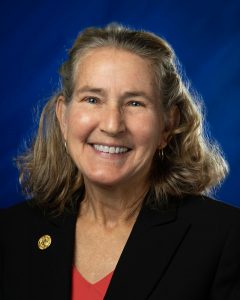Subscriber Benefit
As a subscriber you can listen to articles at work, in the car, or while you work out. Subscribe NowAs the 2024 Indiana legislative session comes to a close, several bills are headed to the governor’s desk, including one on an Indiana Department of Child Services technical change and adoption subsidies.
House Bill 1064 relocates the definition of “foster youth” and defines “licensed kinship caregiver.”
The bill also makes the following changes with regard to state adoption subsidies by first removing the age requirement for eligibility.
Secondly, the bill provides that a child who is a ward of DCS is considered hard to place for purposes of eligibility and removes language regarding medical passports and changes it to “maintain medical records.”
It also provides that if a child in foster care receives medical care, the person having custody of the child shall inform the provider that the child is in foster care and require a copy of the medical treatment record to be sent to the DCS local office.
The bill also provides DCS shall not make an out-of-home placement of a child in a home if a person residing in the home has been convicted of a nonwaivable offense.
The House unanimously concurred in Senate amendments to the bill on March 5.

“DCS supports it. I support it and I count on you supporting it as well,” DeVon said when the House concurred on the bill.
The legislation would allow unlicensed and licensed kinship caregivers, who are providing full-time care for a minor child that is part of a DCS case, to receive the same state benefits and resources as foster parents.
“Caring for children can often place a significant financial burden on their extended families and relatives, and it’s a tall hurdle they need help getting over,” DeVon said in a news release when the bill passed out of the House. “Currently, many kinship caregivers receive minimal government assistance or support, because they need a state license and that’s an extensive process that can take months. So, families just don’t apply. We know that children who have had their worlds turned upside down will do better if they’re kept with family, so we’ve got to do a better job supporting these full-time caregivers.”
The bill unanimously passed out of the House in late January.
“First, I would like to thank Rep. Dale DeVon for authoring this bill, and I’m grateful that he’s continued to raise awareness for the needs of our kinship caregivers. Our caregivers take in their relatives’ children at their most vulnerable – often with no prior planning. Many are retired grandparents who’ve taken in their grandchildren due to overdose addiction. I’m also asking that the state and local entities consider using the state’s opioid settlement funding to support our kinship caregivers. Caregivers should benefit from these funds since our children have been greatly impacted by the substance abuse crisis,” Rep. Rita Fleming, D-Jeffersonville, said in a press release following the passage of the bill in the House.

Please enable JavaScript to view this content.

